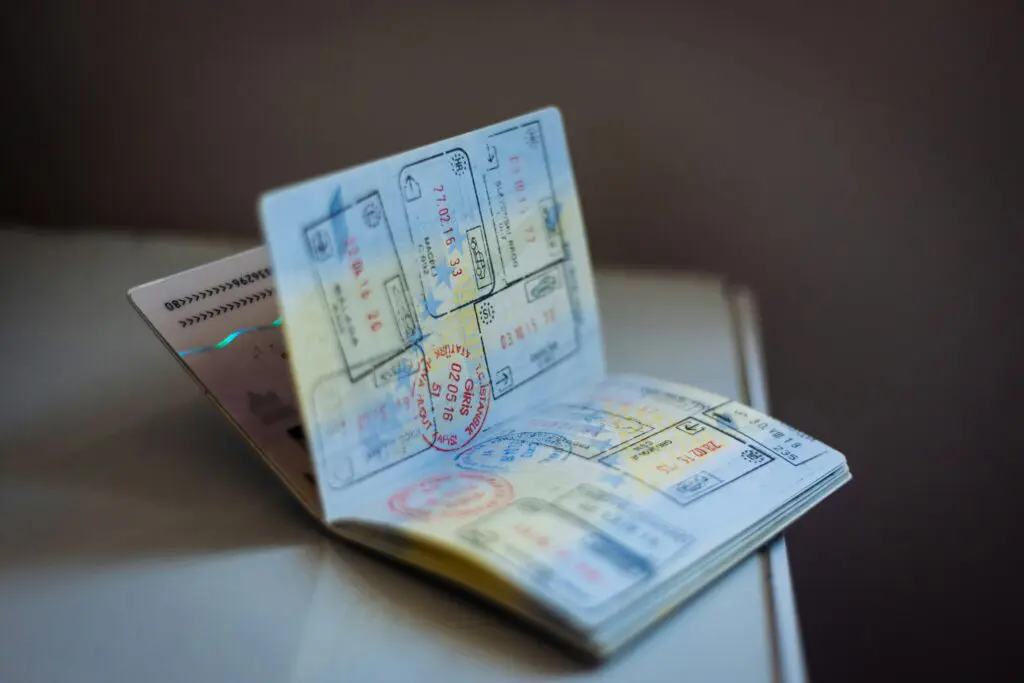
Britain’s Closest Cousin? Why Spain Is More Familiar Than You Think
Here’s a question that might make you spit out your tea (or café con leche): Which country is most similar to Britain? If you guessed Denmark, Sweden, or perhaps Canada,


Del Canto Chambers provides dual-qualified, multi-lingual tax lawyers, who have worked on over 500 cases throughout Europe, the Middle East, Latin America and Asia, making us the counsel of choice for London-based and international clients, corporations, solicitors and tax advisers.
Spanish income tax and residence rules must be considered carefully when buying property, investing or having a business in Ibiza. If you own a property or investment in the Balearics, for example a holiday home or rental, you are liable to pay taxes to the Spanish tax authorities on property you own and other assets and investments. If you do not pay the appropriate tax to the Spanish authorities your property may build up a debt against it, on which interest is also due, which often leads to difficulties in selling it and your bank account could be embargoed.
The Spanish Golden Visa is a way to achieve Spanish residency by investing € 500,000 in real estate or qualified financial investments, intended to attract entrepreneurs to Spain, promoting inbound investments in real estate and other qualifying financial assets.
You can find out more about Spanish Residency rules here
and The Spanish Golden Visa here.
If you own a property in Ibiza or Spain, you are liable to pay a number of taxes consisting of personal income tax on property or any rental income, capital gains tax, City Council tax and tax on assets such as boats. Therefore if you are purchasing a property in Spain it is essential to have specialist legal and tax advice to ensure a smooth and cost-effective transaction.
Del Canto Chambers has advised clients from many countries who have properties, businesses and boats in Ibiza and need holistic joined-up legal and tax advice on their Spanish assets, taking into account their residency status and global wealth.
In 1998, the Spanish non-resident income tax law introduced a tax liability on property in Spain owned by non-residents. Tax on property transfers ITP (Impuesto Sobre Transmisiones Patrimoniales) is applied to the purchase of ‘second-hand’ properties, and value-added tax IVA and AJD (Impuesto Sobre el Valor Añadido and Impuesto sobre Actos Jurídicos Documentados) to new build properties bought from the developer.
It is the buyer who must pay Balearic ITP and it is calculated upon the real value of the property. The tax to be paid will be calculated according to the total value of the property being sold, applying rates that increase progressively from 8 to 10% in the following way:
For a new property, a 10% rate is applied plus associated legal taxes meaning a buyer of a new build property will have to pay 11.2% on top in taxes.
To mitigate their tax liabilities, some people buy their property in Ibiza through a company. Whilst this can be effective it obviously has tax and legal implications that need to be considered. If you are considering purchasing a Spanish property through a company it is essential that tax and legal professionals review the structures used to buy property to ensure compliance. You can read more about buying Spanish property through a company here.
Unfortunately, many Spanish property owners who created corporate structures to purchase their property did so years previously and have given them little consideration since. The Spanish tax authorities are aware of this and if a company was created before 2018 and the tax position has not been assessed recently, they are likely to investigate.
If you own an Ibiza property, regardless if you are or not a resident, you must pay a property tax every year known as ‘Impuesto Sobre Bienes Inmuebles’ (IBI). IBI is a municipal tax, which has to be paid annually and is based on the ‘cadastral’ value of the property. The tax rate which has been approved by each Town Council – and which is the same for all properties within the municipality – will be applied to this value.
The tax is calculated based on the highest of the following three values:
1. The ‘cadastral’ value, as reflected in the property tax receipt for the year to which the return refers.
2. The value assessed by the Spanish Tax Office for purposes of other taxes.
3. The purchase price.
The taxable amount is based on the value plus any charges or liens on the property minus any mortgage the property has. Each individual must file a separate return; if a property is owned by a married couple or by various people, each of them must file a single return for the portion of the house owned (usually 50%).
Personal Income Tax is known as Impuesto de la Renta de no residentes, declaración ordinaria, (IRNR). Owners of properties in the Balearics who don’t live in Spain have to present their income tax return on a yearly basis. If you are a non-resident in Spain, this tax applies only to the income from a property. Income from salary or self-employment will be declared in the country where you are a resident for tax purposes.
The income subject to taxation varies depending on what the property is used for:
Anyone whose main residence is in Spain and who has regular income has to complete an annual tax return. The tax depends on the amount of income, with a minimum rate of 24% and a maximum of 52%.
The Beckham Rule in Spain is a special expats tax regime that enables foreigners who have moved to Spain the option of paying tax as non-residents, so that their Spanish employment income is taxed at a fixed rate of 24% up to 600,000 euros rather than the progressive tax rates applicable to Spanish residents. If taxed as a resident, the expat would be subject to a progressive tax scale up to 43% depending on their level of their worldwide incomes. You can find out more about the Beckham Rule.
Property income tax has to be paid on the profit made when selling a property. The rate for residents is:
It is advisable to hire the services of a tax expert as there are a number of tax-deductible costs – for example, if the property was bought before 1986.
This is a tax on the increase in the value of urban plots that is accrued when a property is being sold. According to the law, it is the seller who pays this tax, although it could be passed over to the buyer if specified in the contract. The amount of this capital gain depends, amongst other things, on the surface of the piece of land and the length of time that it belonged to the seller.
If you want to give a professional, such as a lawyer, or a family member the power to manage your property, business or investments in Ibiza or the rest of Spain, you need to issue a Power of Attorney. A Power of Attorney is a legal document to appoint trusted individuals (‘Attorneys’) to make important decisions on your (the ‘Donor’) behalf.
It is common in Spain for international clients to grant Power of Attorney to legal firms so that lawyers can deal with matters on behalf of their clients when they are not in Spain. A Power of Attorney will often be the most practical way of enabling a Spanish lawyer to undertake tasks and sign documents on behalf of their clients so they do not have the expense and the inconvenience of having to attend in-person to sign or authorise each part of a legal matter.
You can read more about Spanish Power of Attorney here.
Spanish Wills and Inheritance Tax are both important considerations if you have property and/ or investments in Ibiza. It is normally recommended that you draft a Spanish Will to cover assets located in Spain and a foreign Will to cover any assets in other countries. It is important that there are no legal or tax conflicts between the application of the Spanish Will and the international Will.
You can find out more about Spanish Wills here
If you own property in Ibiza, or if your beneficiaries reside in Spain, then you will be liable for inheritance or succession tax. The main difference between UK and Spanish inheritance tax is that there is no exemption between husband and wife. When one dies, the other is liable for inheritance tax on worldly assets. A surviving spouse may be left a ‘life interest’ in the property instead.
Tax rates range between 7.65% and 35% and beneficiaries are graded into 4 categories whereby the more distant the relationship, the lower the tax allowance and the higher the tax. If you are UK domiciled you are liable to pay tax in both countries, but these liabilities can be offset against each other. An offshore trust can mitigate inheritance tax and further protect your assets.
It is not uncommon for people who have a property in the Balearic Islands to also want to purchase and own a boat, to take advantage of the beautiful sea. However, buying a boat in Spain requires an understanding of many complicated tax laws.
A brand-new boat, over 8m length, purchased in Spain and registered under the Spanish flag will be liable to VAT at 21 per cent and Matriculation tax at 12 per cent, both calculated on the value for Spaniards. However, for non-residents in Spain, there is a route to avoid the payment of these taxes, but it is dependent on whether the purchaser is an EU resident or from outside the EU.
Under the scheme called “matricula turística”, a non-Spanish resident from another EU country will benefit from an exemption on the matriculation tax, therefore avoiding the extra 12 per cent although VAT must be paid. If the buyer is from outside the EU, the total amount (both the matriculation tax and VAT) will be exempt.
VAT is chargeable on boats imported into the EU and on boats purchased and owned by residents of the EU who are using their boat within the EU. VAT is also chargeable on boats, irrespective of ownership, which spend more than 6 months in any calendar year cruising in the EU, although there is scope to enable an owner to use a yacht in the EU without being liable for VAT.
If the purchase is of a second-hand boat the seller has to offer an automatic guarantee in the event of possible undetected problems for a period of six months to two years depending on how the transaction was conducted.
Who is buying or selling the boat can also make a difference regarding the amount of tax to be paid. If there is a professional agent/ intermediary acting on behalf of the buyer/seller in the boat transaction the tax liability can differ. If the transaction takes place between two individuals, but the buyer is non-resident in Spain, the transaction will be tax-exempt in Spain.
With such complicated tax implications it is important to get advice before buying or selling a boat in Ibiza.


Del Canto Chambers provides dual-qualified, multi-lingual tax lawyers, who have worked on over 500 cases throughout Europe, the Middle East, Latin America and Asia, making us the counsel of choice for London-based and international clients, corporations, solicitors and tax advisers.

Corporate Cases
We have worked on several corporate cases including some of the worlds leading companies in media, luxury boats, football clubs, NGOs, investments and much more
Del Canto Chambers specialists are constantly up to date with new legislative changes and aware of any Spanish tax and legal implications. Contact our Spanish legal and tax specialists to find out the best tax planning and corporate structures in your circumstances.



At Del Canto Chambers we are always sharing our knowledge and act as an active voice across different media. The following articles and news are related to and relevant for Real Estate Sale & Purchase and Spanish Tax Law.

Here’s a question that might make you spit out your tea (or café con leche): Which country is most similar to Britain? If you guessed Denmark, Sweden, or perhaps Canada,

International divorce between the UK and Spain raises complex legal and strategic issues. Following Brexit, the legal landscape has shifted from automatic EU regulations to a more nuanced framework of international

Spain’s Supreme Court has issued a groundbreaking ruling, STS 1324/2025, October 21, 2025, that fundamentally reshapes visa processing for the more than 1.5 million people who apply for Spanish visas
In accordance to the Bar Standards Board, we hereby inform you that you may contact us for a quotation.